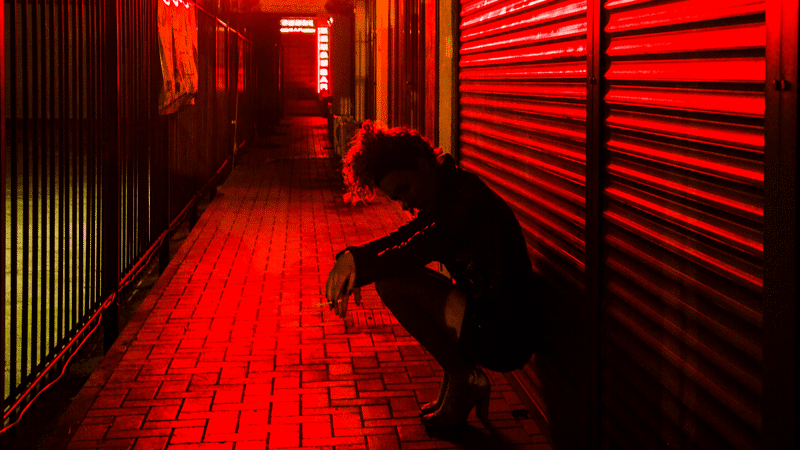The problem with Ash Regan’s drive to protect women from prostitution

Alba’s Holyrood leader Ash Regan is deeply concerned about prostitution. Unlike some campaigners who talk about so-called ‘sex work’ as if it is any other kind of work, Regan is clear that many women involved in prostitution do not have full agency over their decisions.
Last week, she spoke out about the high percentage of women who enter prostitution as children and the role of rape gangs who seek to exploit vulnerable children.
“The rape torture gangs shows there is a need” to change the law, she said. “It feels like we are in an epidemic of violence against women, and this would send a very clear message that we will not put up with this any more.”
Regan is right to link prostitution to child grooming gangs. The truth is we can’t talk about prostitution in the UK without talking about child sexual abuse. It’s estimated that at least 60,000 people in the UK are in prostitution – the overwhelming majority of whom are women. It is thought that around 40,000 of them started as children.
It’s a truly horrifying figure, and begs the question: How did they end up there? More specifically, how can children be so neglected, so invisible, and so let-down by society that they are sexually exploited for years and end up in prostitution?
Christians should be in no doubt that change is needed to stop the systematic exploitation of forgotten children and young people.
Close to home
There can be a tendency to think these issues happen far away, in other countries. However, the high-profile cases of rape gangs operating across the UK reinforce the fact that this is an issue we can’t ignore. One study found that across nine countries, those who were sexually abused as children before entering prostitution had an average of four abusers – exposing patterns of systematic and organised sexual abuse leading children into the arms of sex traffickers and pimps.
Stories from those who have left prostitution behind build our understanding of what these children experience.
Often coming from an abusive home or care setting, girls can seek affection from a boyfriend looking to exploit their vulnerability. They can be similarly vulnerable if they run away from home, and are then picked up by pimps who deliberately get young people addicted to drugs, creating a cycle of dependency.
Many who were victims of child sexual exploitation explained that while being sexually assaulted by a paedophile – sometimes a family member – left them feeling helpless, selling their own bodies offered the illusion they were in control. It often took time to realise the connection between the abuse they experienced as a child and their vulnerability to abuse by pimps. For women desperate to leave prostitution it can take many years.
As it stands, in Britain, those who purchase sex face no criminal sanctions for participating in the exploitation of women or men in prostitution.
There are two main camps for legislative change. One side seeks to legalise all aspects of prostitution, including exploitation, by allowing pimps and brothel-keepers to operate lawfully. This pro-prostitution movement is often backed by groups purporting to represent women in prostitution but who actually are linked to sex trafficking, like the Network of Sex Work Projects1, 2.
The other camp proposes the Nordic Model (sometimes known as the Equality Model). This would seek to shift the burden of criminality from those who are exploited in prostitution to those who buy people’s bodies for sex.
Problems with the Nordic Model
Ash Regan supports the latter, and is planning on bringing her ‘Unbuyable Bill’ before the Scottish Parliament this year. If passed, it would criminalise those who buy sex in an attempt to slash the demand for prostitution and eradicate the market that groomers, pimps and traffickers earn their profits from. Fines and prison sentences would penalise sex buyers, and therefore participation in exploitation would come at much greater risk and would deter men from exploiting women and children in prostitution. Regan also seeks to give women a legal right to get help to leave prostitution for good. Christians should support these goals.
However, the Nordic Model also includes fully decriminalising the sale of sex. The rationale is that removing criminal sanctions will help women find a route out of prostitution. The problem is that legalising the sale of sex won’t stop the sale of sex, and actually sends the message that there’s nothing wrong with it.
But selling sex is morally wrong and causes significant harm. While criminalising the purchase of sex sends a strong signal to society that prostitution is wrong, having no offences attached to selling sex says the opposite. It also achieves half the goals of the camp who want to see prostitution normalised.
We are called to look after the orphans and speak up for those who cannot speak for themselves (James 1:27, Proverbs 31:8-9), and stories of exploitation and abuse compel us to both pray and act.
There are many testimonies of women who were in prostitution whose lives have been turned around by God. They have discovered that he is just and that he loves them, as he loves each and every one of those exploited children and adults.
Greater determination and ambition is needed to see through laws that will truly protect children and adults from the manifold harms of prostitution. We need laws that protect the vulnerable and stop the self-perpetuation of harm. Decriminalising the sale of sex is not the answer.
1 ‘Why is a pimp helping to shape Amnesty’s sex trade policy?’, The Guardian, 22 October 2015, see
https://www.theguardian.com/commentisfree/2015/oct/22/pimp-amnesty-prostitution-policy-sex-trade-decriminalise-brothel-keepers as at 24 January 2025
2Bindel, J. The Pimping of Prostitution, Palgrave Macmillan, 2017, page 238
